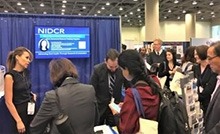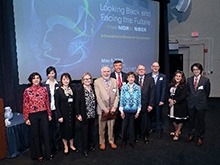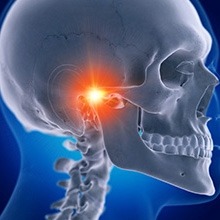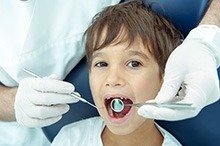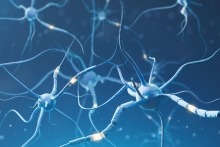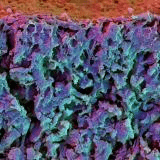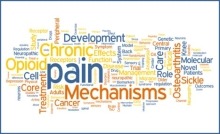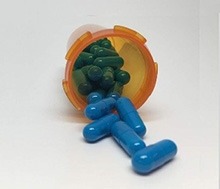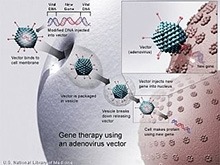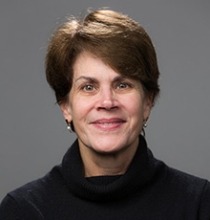NIDCR at IADR/AADR/CADR Annual Meeting in Vancouver
From June 19 to 22, NIDCR leadership, program staff, investigators, and trainees will be at the 2019 IADR/AADR/CADR General Session and Exhibition at the Vancouver Convention Centre. Attendees can visit NIDCR at booth 316. For reminders about NIDCR-sponsored symposia or other events during the meeting, follow @NIDCR on Twitter. Or access the schedule on the NIDCR website.
2020 Surgeon General’s Report on Oral Health
In April, NIDCR’s Bruce Dye, DDS, MPH, and Judith Albino, PhD, met with US Surgeon General Jerome M. Adams, MD, MPH, to present the framework and progress updates for the 2020 Surgeon General's Report on Oral Health, now in development. NIDCR is working closely with the Office of Surgeon General to produce the report. Through frequent public engagements, Drs. Dye and Albino continue to provide updates and seek input from stakeholders in the oral health community. These efforts include presentations at the National Oral Health Conference in Memphis on April 17, the Santa Fe Group's "Salon on Comprehensive Health Without Oral Health: The Medicare Paradox," in Arlington, Va. on May 9, and the upcoming International Association for Dental Research General Session, National Dental Association Annual Convention, American Dental Association Annual Meeting, and the American Public Health Association Annual Meeting in the summer and fall. The report, expected to be released in late 2020, will document progress and challenges impacting oral health since 2000, when the landmark Surgeon General's report, "Oral Health in America" was published.
NIDCR Hosts Craniofacial Research Symposium
NIDCR hosted a symposium, "Looking Back and Facing the Future: From NIDR to NIDCR, A Craniofacial Research Symposium" on May 6 on the NIH campus in Bethesda, Md. Two former NIDCR directors, Lawrence Tabak, DDS, PhD, and Harold Slavkin, DDS, as well as current director Martha Somerman, DDS, PhD, delivered talks at the event. The symposium included presentations on craniofacial development and regeneration, wound healing, salivary gland development and regeneration, and bone metabolism. A videocast of the event is available.
National Academies Hosts Public Workshop on TMD
As part of an effort to develop a consensus report on temporomandibular disorders (TMD), the National Academies of Sciences, Engineering, and Medicine Committee on Temporomandibular Disorders hosted the second in a series of meetings to assess the current state of knowledge about TMD. The March 28-29 meeting, a portion of which was open to the public, featured patient perspectives and expert talks on TMD research, its public health impact, and current standards of care. Yolanda Vallejo, PhD, director of the Neuroscience of Orofacial Pain and Temporomandibular Disorders Program in NIDCR’s Division of Extramural Research, presented on TMD science from an NIH perspective. Helene Langevin MD, director of the National Center for Complementary and Integrative Health and NIDCR intramural investigator, discussed complementary and integrative health approaches for TMD.
Health Screening in Childhood Workshop
NIDCR, along with seven other NIH Institutes and Offices, helped fund the Methods for Assessing the Impact of Screening in Childhood on Health Outcomes workshop, which took place May 9-10 and was organized by the NIH Office for Disease Prevention. Dena Fischer, DDS, MSD, MS, director of NIDCR’s Clinical and Practice-Based Research Program, served on the workshop organizing committee. The workshop’s aim is to stimulate methodological innovation in evaluating the impact of screening on childhood health outcomes, including oral health.
Nanoparticle Robots Sweep Away Biofilms
NIDCR-supported researchers at the University of Pennsylvania developed a method of destroying biofilms with tiny robots made of iron oxide nanoparticles. In a Science Robotics paper, the researchers showed that these “catalytic antimicrobial robots” could break up a biofilm matrix, kill the bacteria inside, and remove the debris from a glass surface, the inside of a tiny tube, and within a narrow channel inside an extracted tooth.
Nerve Cells that Feel the Itch
In a recent Cell Reports paper, NIDCR intramural scientist Mark Hoon, PhD, and colleagues provide new insights into an itch pathway they first found in 2013. Their early research identified the neurons and molecules that form the itch route but did not reveal details of how the circuit’s sensory neurons—called natriuretic polypeptide b (Nppb)-expressing neurons—are turned on. In the current study, the researchers show how Nppb neurons can be activated by immune defenders called mast cells. These insights could lead to better treatments for itch- and pain-related conditions.
NIDCR-supported scientists in the lab of Harvard bioengineering professor David Mooney, PhD, have found that the mechanical properties of a hydrogel—its stiffness or stretchiness—profoundly influence whether bone marrow-derived stem cells (mesenchymal stem cells) develop into fat or bone, and even their potential to affect immunity. The findings could lead to development of therapeutic cell delivery systems that can be adapted to the type and location of tissue damage.
NIH Director Testifies Before Congress on FY 2020 Budget Request
On April 2, NIH Director Francis S. Collins, MD, PhD, appeared before the House Appropriations Subcommittee on Labor, HHS, Education, and Related Agencies, and on April 11 he appeared before the corresponding Senate subcommittee. Collins discussed the FY 2020 President’s Budget, which provides $34.4 billion for NIH to fund the highest priority scientific discoveries while also maintaining fiscal stewardship of federal resources. He stated that the budget will prioritize biomedical research to confront our nation’s greatest medical challenges, including the opioid crisis, precision medicine, and pediatric cancer.
NIH Director Outlines Efforts to Address Sexual Harassment in Science
In February, the Working Group of the Advisory Council to the Director on Changing the Culture to End Sexual Harassment met for the first time and heard from a wide range of experts and perspectives. The working group will report interim recommendations in June and provide a final report and recommendations to the Advisory Council to the Director in December. Collins also described beginning steps being taken by NIH senior leadership, actions that include demonstrating accountability and transparency to show the agency’s serious commitment to addressing harassment, clarifying expectations for institutions and investigators to ensure a safe workplace and inform the agency, and listening to victims and survivors of sexual harassment and incorporating their perspectives into future actions. On May 16, NIH held a public listening session in which members of the scientific community relayed their experiences with sexual harassment in the workplace and provided input that will inform the Working Group’s recommendations.
NIH Reports HEAL Initiative Progress
In March, the NIH director announced the formation of the HEAL Partnership Committee, a group of experts that will help guide NIH research to develop new, non-addictive medications and technologies that reduce the need for opioids. In April, NIH announced the selection of four research sites for the HEALing Communities Study in states hard hit by the opioid crisis. More than $350 million will support this multi-year study, which aims to reduce overdose deaths by testing a set of proven prevention and treatment interventions. NIDCR Director Martha Somerman, DDS, PhD, along with the directors of seven other NIH institute and centers, serves on the HEAL Initiative Executive Committee, which is responsible for final decisions regarding HEAL Initiative research. Yolanda Vallejo, PhD, director of the Neuroscience of Orofacial Pain and Temporomandibular Disorders Program, serves as NIDCR's HEAL programmatic lead.
Two Decades of Data Reveal Overall Increase in Pain, Opioid Use among US Adults
Prompted by a call from the National Academy of Medicine, a recent study conducted by the National Center for Complementary and Integrative Health provides new insights concerning pain trends and opioid use for pain management. Data from the Medical Expenditure Panel Survey showed that the number of US adults age 18 and older suffering from at least one painful health condition increased substantially from 120.2 million (32.9%) in 1997/1998 to 178 million (41%) in 2013/2014. Furthermore, the use of strong opioids for pain management among adults with severe pain-related interference more than doubled from 4.1 million (11.5%) in 2001/2002 to 10.5 million (24.3%) in 2013/2014.
NIH Supports International Moratorium on Clinical Application of Germline Editing
Leading scientists and ethicists from seven countries called for an international moratorium on the use of genetic editing to modify the human germline for clinical purposes. The call came in the wake of research in China, in which a scientist claimed to have altered the DNA of two embryos that were subsequently implanted and infant twins born. Emphasizing NIH’s strong agreement with the moratorium, Collins and NIH Office of Science Policy Director Carrie Wolinetz, PhD, outlined the reasons for a moratorium and the need for international actions in a correspondence to the journal Nature.
NIH Streamlines Gene Therapy Oversight
In August 2018, NIH and the Food and Drug Administration (FDA) announced a joint proposal to streamline duplicative and burdensome oversight over gene therapy. As part of this effort and following public input, in April NIH released the amended NIH Guidelines for Research Involving Recombinant or Synthetic Nucleic Acid Molecules, which remove the requirement to register and report on human gene therapy protocols. Robust oversight continues under the FDA, which has regulatory oversight of all human gene therapy clinical trials.
Collins Charges Working Group to Explore Artificial Intelligence
In February, President Donald J. Trump signed an executive order launching the American Artificial Intelligence (AI) Initiative, which will focus federal government resources to develop AI to increase our nation's prosperity, security, and quality of life. Collins charged the Working Group on AI within the NIH Advisory Council to the Director to determine opportunities for innovative cross-NIH efforts in AI, identify mechanisms for NIH, build connections and collaborations among computer and data science communities and the biomedical research communities, define approaches to encourage computer scientists to work in the biomedical field, and identify major ethical considerations as they relate to biomedicine using AI and related technologies for health-related research.
New Fellowship Program Will Bring African Scientists to Train at NIH
The African Postdoctoral Training Initiative, a collaboration of the NIH, the African Academy of Sciences, and the Bill and Melinda Gates Foundation, is a new NIH fellowship program that aims to prepare future generations of African researchers while establishing ongoing scientific partnerships between NIH labs and African investigators and institutions. Ten fellows were chosen for the inaugural cohort, they are assuming their NIH positions in 2019, and another cohort is expected to be recruited in 2020.
NIH Director Francis Collins selected Debara L. Tucci, MD, MS, MBA, to lead the National Institute on Deafness and Other Communication Disorders as its new director. Tucci currently is professor of surgery and director of the cochlear implant program in the Division of Head and Neck Surgery & Communication Sciences at Duke University, Durham, N.C. She is expected to join NIH on September 3, 2019.


